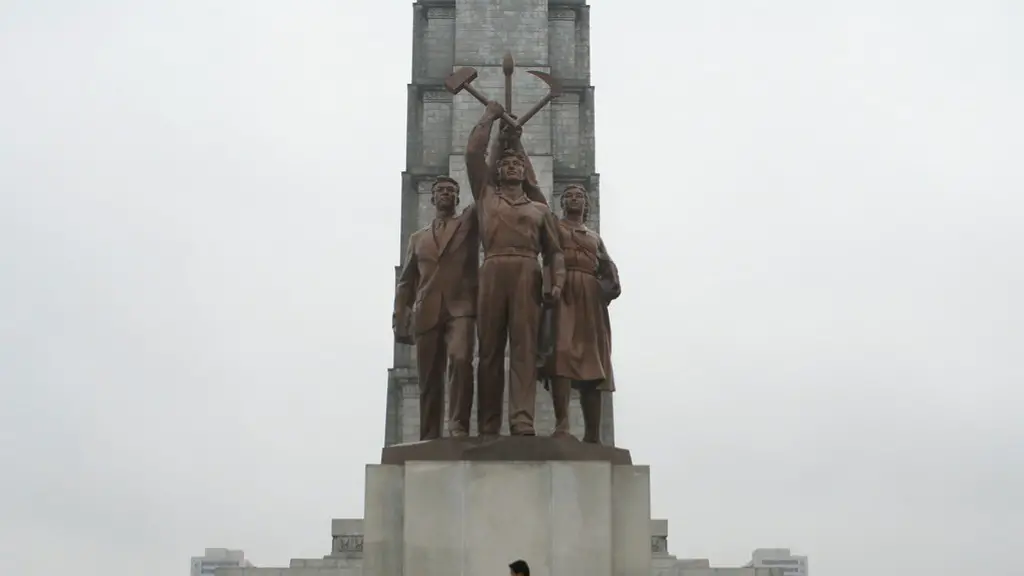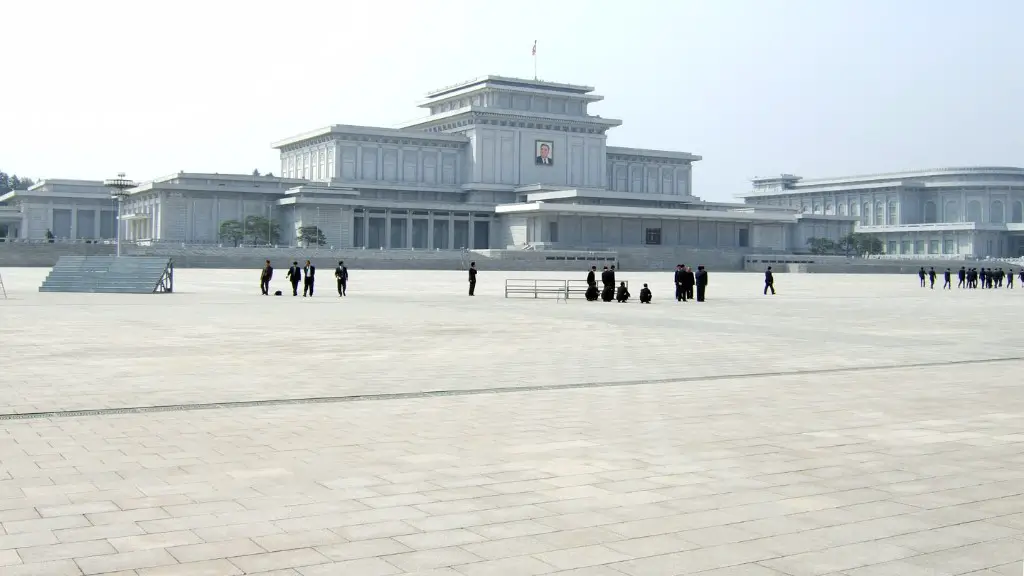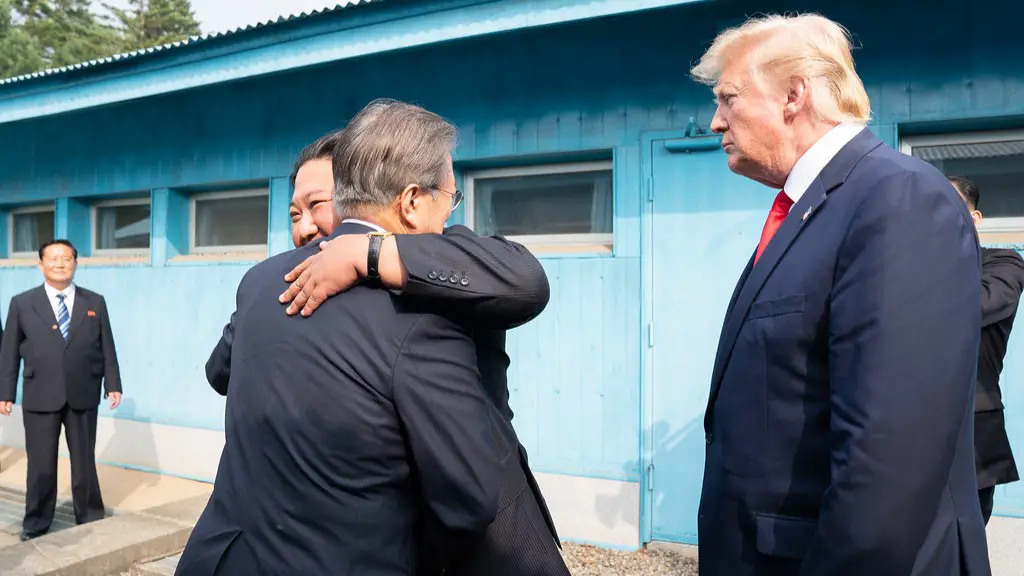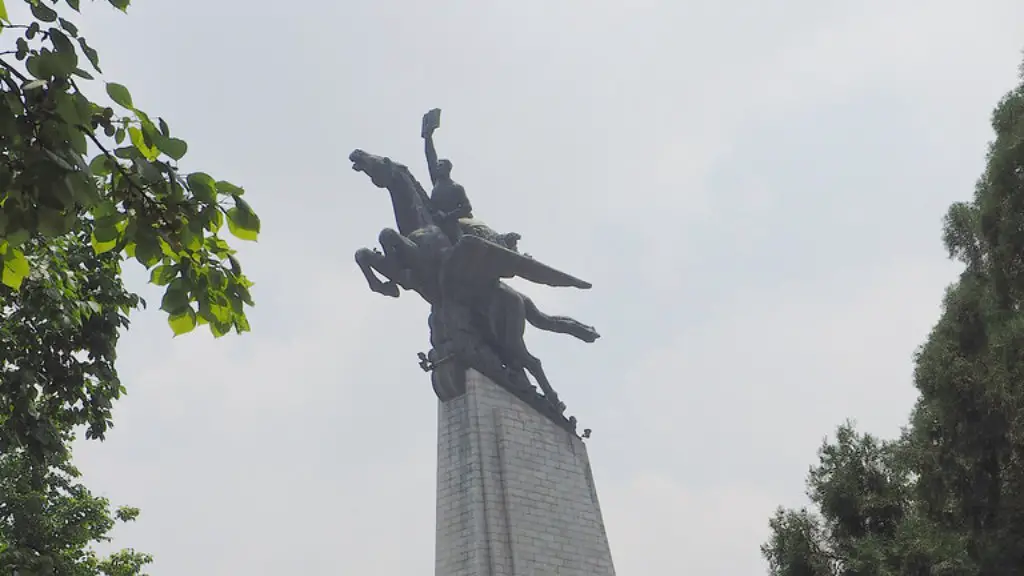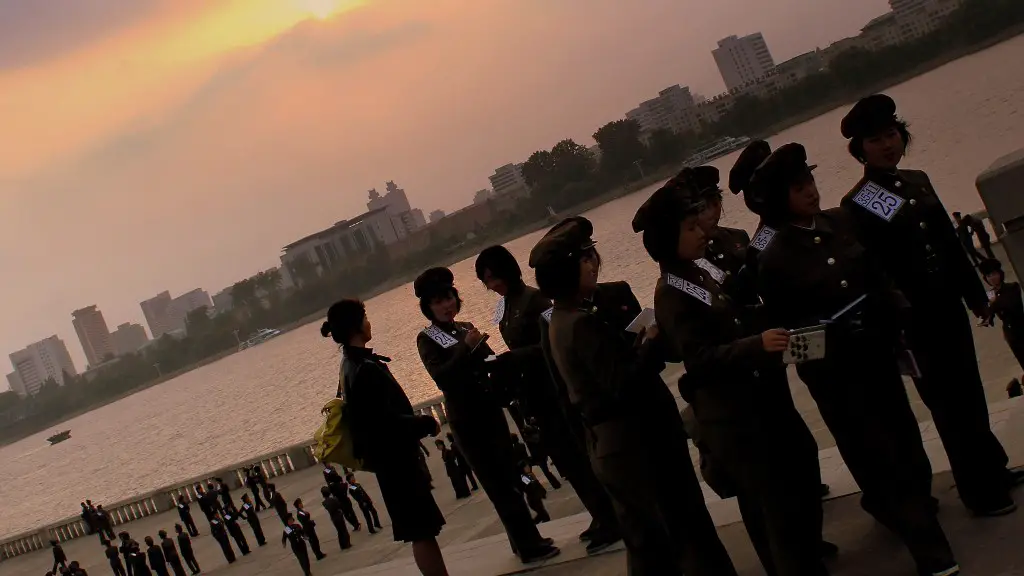What is North Korea All About?
North Korea, also known as the Democratic People’s Republic of Korea (DPRK) and commonly referred to as simply Korea, is the only officially state-controlled and isolated nation in the world. It lies in the heart of east Asia, bordering China and Russia to the north and South Korea to the south.
The Democratic People’s Republic of Korea is known for its communistic military dictatorship and human rights abuses. The government wields immense power and controls every aspect of life for its citizens, from the media to culture and thoughts. The state’s “Juche” ideology, views citizens’ loyalty to the regime and its efforts as an important pillar of its political structure, and these citizens play a major role in its military strength.
North Korea’s economy, on the other hand, has been known for many years to be heavily reliant on foreign aid. Despite these difficulties, the government has been able to stabilize the economy by maintaining strict control over national funds and resources. The country’s major industries are agriculture, timber, and manufacturing. North Korean manufactures is best known for producing textile, machine tools, fertilizers, leather goods, processed food, fertilizer and cement.
In recent years, North Korea has become a major global concern, especially due to its advancing nuclear weapons program. North Korea has been developing nuclear weapons since the 1950s, and the government has been conducting multiple underground and missile experiments in the recent past. Its new nuclear program is aimed to bolster national security, with the regime hoping to use these weapons as a deterrent against potential enemies. Despite international intervention, North Korea has made significant progress in its weapons program over the past few years.
The international community, especially the United States, South Korea and Japan, have had multiple attempts to solve the ‘North Korean issue’, but all have failed with tensions between the two sides remaining high. Despite international sanctions and pressure, North Korea has no intention to end its weapons program, leading analysts to worry about its implications for the stability of the region.
In the face of such a complex situation, many experts believe that the only way to resolve the current crisis is to create a dialogue between the North Korean government and the international community. This will require a willingness to compromise and address the underlying problems that drove North Korea to pursue its weapons program in the first place. Ultimately, the only way to truly address the security concerns of the region is to reach an agreement that all sides can agree to.
International Relations
North Korea is not in good standing with many of its surrounding nations, nor are those countries on good terms with one another. North Korea has a hostile relationship with South Korea, Japan and the United States. North Korea also has strained relations with China, its largest economic partner. North Korea’s occupation of the Jawong-do islands is also a source of tension between North and South Korea.
The DPRK also has strained relations with other major powers in the region, such as Russia and China. North Korea is also engaged in diplomatic conflicts with the United Nations over its nuclear program and has been known to engage in missile tests and nuclear weapon testing that have raised alarm among the international community.
North Korea’s relations with the United States have been especially strained in recent years. This is primarily because of the DPRK’s nuclear weapons program and their refusal to comply with UN sanctions. The United States has also imposed economic sanctions on North Korea and the DPRK has responded with verbal attacks.
Despite all its international issues and difficulties, North Korea is still part of the international community, engaging in various international issues. For example, North Korea is part of the Six Party Talks, held in Beijing, which are aimed at reducing nuclear tensions in the Korea Peninsula. North Korea is also part of the Six-Party Energy Work Group, an international program designed to provide North Korea with alternative energy sources while reducing the need for plutonium production.
North Korea is also a member of the United Nations, and has recently been a part of the UN Human Rights Council. The DPRK is also an observer in the International Atomic Energy Association, signatory of the Comprehensive Nuclear Test-Ban Treaty, and a member of the World Trade Organization.
Domestic Policies and Political Structure
North Korea’s government is a single-party state headed by the Supreme Leader, Kim Jong-un. The government is dominated by the Korean Workers’ Party, which wields absolute control over all aspects of life for the citizens. All political activities are suppressed, with the exception of those that are permitted and approved by the government.
Kim Jong-un is the Chairman of the Workers’ Party of Korea, the overall head of state and commander of the Korean People’s Army. He holds all power within North Korea and has total control over the government and all decisions. The government has a number of ministries and offices, such as the Central Committee of the Korean Workers’ Party, Office of the Supreme Leader, National Defence Commission, and Academy of Social Science.
North Korea also has a complex power structure. The Supreme Leader is at the top, followed by the Politburo, which holds majority of the power. Underneath the Politburo are the political and military departments, which are responsible for carrying out the policies of the government. The people’s army and police are also important actors in the government.
The North Korean state also controls all media and propaganda. All media is heavily censored and controlled in order to propagate the state’s narrative. North Korean media is known for its heavily propagandistic nature, which is used to control the populace and reinforce the regime’s hold on power.
The government also maintains a tight grip on the country’s education system, which is highly centralized and aims to instill loyalty to the state. All education is heavily politicized and is used for the purpose of propagating the state’s ideology. All citizens must attend mandatory political classes and pass a loyalty test in order to receive higher education.
Human Rights
The human rights situation in North Korea is dire. The state engages in a wide range of human rights abuses, including arbitrary detention and torture, forced labor, and extrajudicial killings. The government heavily restricts freedom of speech and expression and has a zero-tolerance policy for any dissent or opposition.
The government has also been accused of committing atrocities against its own citizens. Human Rights Watch has documented a wide range of human rights violations committed by North Korea, including extrajudicial executions, enforced disappearances and public executions. A large number of citizens, especially those who are deemed dissidents, are kept in political prisons or labor camps. The government also restricts freedom of movement and the right to travel for many citizens.
North Korea’s human rights record has been condemned by the international community, with the UN and other organizations calling for the improvement of the human rights situation. In response, the North Korean government has denied the accusations and attempted to justify its human rights record by stressing the importance of “national security” and “cultural protection”.
The government has also attempted to deflect criticism by pointing to the “pro-socialist policies” that it has enacted to improve the quality of life for its citizens. However, these policies have failed to address the serious issues facing the citizens of North Korea and the international community remains highly critical of the government’s human rights record.
International Relationships
North Korea’s international relationships have been heavily influenced by its nuclear program and the ongoing tensions with the international community. North Korea has long been considered to be an isolated state, and has faced numerous international sanctions. Despite these sanctions, North Korea has been able to maintain its relations with many countries in the region and has had diplomatic exchanges with some states.
China is North Korea’s closest ally and has been providing the DPRK with economic aid ever since the Korean War. As such, China is the North Korean government’s most important supporter, providing the state with much-needed economic, political and military support.
North Korea also has ties with Russia, with the two countries engaging in trade and diplomacy. North Korea also has a number of allies in the region, such as Iran, Cuba and Syria. North Korea has also maintained diplomatic ties with many other nations, particularly in Africa and Latin America.
Recently, North Korea has been engaging in diplomatic relations with some of its former enemies. In 2018, North Korea began talks with South Korea, leading to an historic summit between Kim Jong-un and South Korean President Moon Jae-in. This summit signaled a marked shift in North Korea’s relationship with the international community and could lead to further diplomatic relations.
North Korea has also had some level of contact with the United States, with the two countries engaging in diplomatic talks in 2018. While there has been some progress in the talks, it is still unclear if the two nations will be able to reach an agreement.
A Changing North Korea?
In recent years, North Korea has made efforts to improve its international reputation and its position in the global community. The government has made some progress in terms of engaging in diplomatic talks with other nations and is attempting to normalize its relationship with the international community.
This newfound openness has raised the hopes of many that North Korea will eventually make a political and economic transition towards a more open state where the citizens’ rights are respected and the freedoms of individuals is protected. While the process is still in its early stages and much work needs to be done, North Korea’s recent moves have raised optimism that the country is ready to make a positive change.
As with all change, however, there will be many challenges. It is unclear if the North Korean government will be willing to make significant changes to its political structure or its human rights abuses. It is also unclear if the international community is willing to accept a nuclear-armed North Korea, and if the economic sanctions imposed on the country will be lifted.
Only time will tell if these changes are true and if North Korea truly is ready to make a real change.
